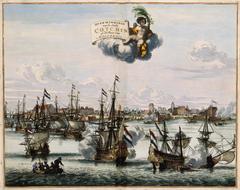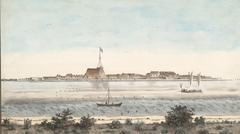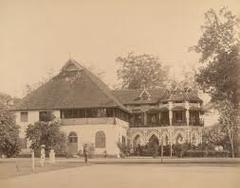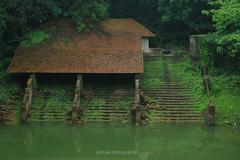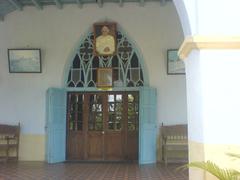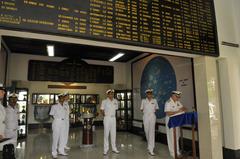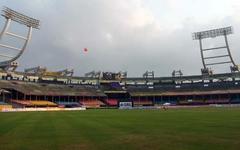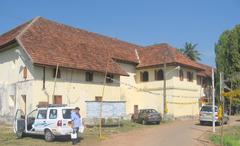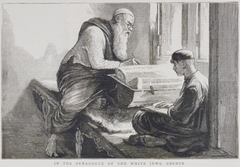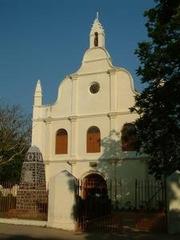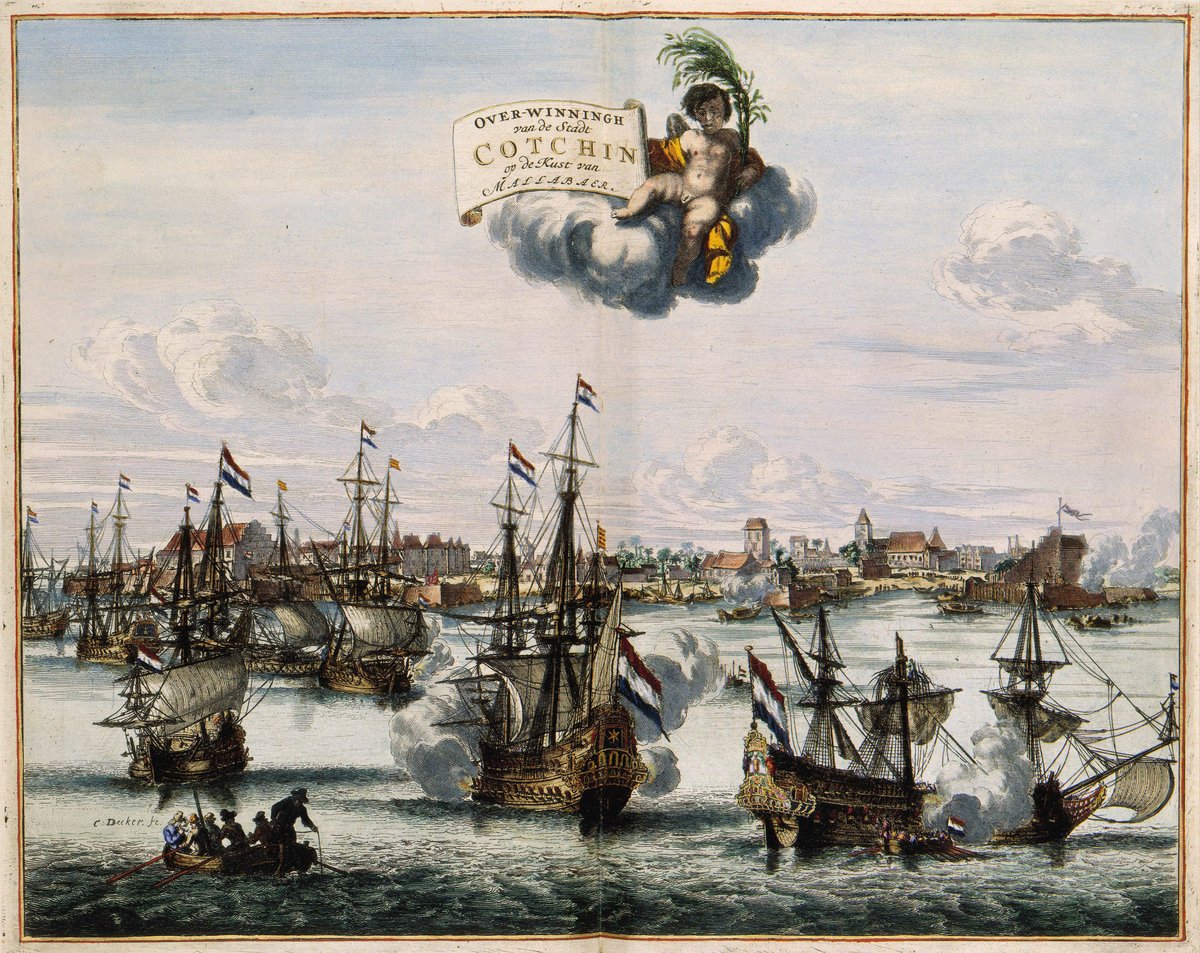
Comprehensive Guide to Visiting Kochi Beach, Kochi, India
Date: 18/07/2024
Introduction
Nestled in the vibrant city of Kochi, Kerala, India, Kochi Beach, often referred to as the “Queen of the Arabian Sea,” stands as a testament to the region’s rich historical and cultural tapestry. This picturesque coastline is not merely a destination for beach lovers but also a historical treasure trove that has witnessed significant events spanning centuries. From the ancient spice trade routes of the 14th century to the colonial influences of the Portuguese, Dutch, and British, Kochi Beach has played a pivotal role in shaping the cultural and economic landscape of the region (source). This guide delves into the multifaceted allure of Kochi Beach, exploring its historical significance, cultural diversity, and practical visitor information, making it an essential resource for anyone planning to visit this iconic destination.
Table of Contents
- Introduction
- Early History and Colonial Influence
- Cultural Melting Pot
- Maritime Significance
- Religious and Cultural Landmarks
- Modern-Day Significance
- Visitor Information
- Special Events and Guided Tours
- Photographic Spots
- FAQ
- Conclusion
Early History and Colonial Influence
Portuguese Era
Kochi’s history dates back to ancient times, with the region being a significant spice trading center as early as the 14th century. The strategic location of Kochi Beach made it a focal point for colonial powers, including the Portuguese, Dutch, and British. The Portuguese established their stronghold in Kochi in 1503 by building Fort Emmanuel, also known as Fort Kochi. The remnants of this fort near Kochi Beach offer a glimpse into early colonial architecture (source).
Dutch Era
In 1663, the Dutch captured Kochi from the Portuguese, contributing significantly to the city’s infrastructure. The Dutch Palace, also known as Mattancherry Palace, is a notable example of Dutch influence, located a few kilometers from the beach (source).
British Era
The British took control of Kochi in 1795, making Kochi Beach a popular recreational spot for British officials. They developed port facilities, turning Kochi into a crucial port on India’s west coast (source).
Cultural Melting Pot
Kochi Beach has always been a cultural melting pot due to its historical significance as a trading hub. The beach and its surroundings are home to diverse communities such as Jews, Arabs, Chinese, and Europeans. This diversity is evident in the architecture, cuisine, and festivals. One iconic symbol of this cultural amalgamation is the Chinese fishing nets, introduced in the 14th century and still in use today (source).
Maritime Significance
Kochi Beach’s proximity to the natural harbor has made it a significant port for centuries. The Cochin Shipyard, established in 1972, is one of India’s largest shipbuilding and maintenance facilities, emphasizing Kochi’s ongoing importance as a maritime hub (source).
Religious and Cultural Landmarks
Kochi Beach is surrounded by religious and cultural landmarks reflecting the city’s diverse history. St. Francis Church, near the beach, is one of the oldest European churches in India. Originally built by the Portuguese in 1503, it is the final resting place of explorer Vasco da Gama (source).
Another landmark is the Paradesi Synagogue, located in Jew Town, built in 1568. It symbolizes the Jewish community’s long-standing presence in Kochi and is a short drive from the beach (source).
Modern-Day Significance
Today, Kochi Beach is a vital part of the city’s cultural and social life. It is a popular destination for both locals and tourists, offering historical landmarks, cultural experiences, and natural beauty. The beach hosts various events, such as the Cochin Carnival in December, featuring parades, music, dance, and fireworks (source).
Visitor Information
- Visiting Hours: Kochi Beach is open 24 hours a day, but early mornings and late evenings are recommended for a pleasant visit.
- Tickets: No entry fee is required to visit Kochi Beach.
- Nearby Attractions: Besides the historical landmarks mentioned, visitors can explore the nearby Marine Drive, Jew Town, and the Kerala Folklore Museum.
- Travel Tips: Wear comfortable walking shoes, carry sunscreen, and stay hydrated. The best time to visit is during the cooler months from October to March.
Special Events and Guided Tours
- Kochi-Muziris Biennale: An international exhibition of contemporary art held every two years (source).
- Guided Tours: Available through various tour operators for a deeper understanding of the area’s history and culture.
Photographic Spots
- Sunset at Kochi Beach: Capture stunning sunsets over the Arabian Sea.
- Chinese Fishing Nets: Perfect for unique and historical shots.
FAQ
Q: What are the visiting hours for Kochi Beach?
A: Kochi Beach is open 24 hours a day.
Q: Is there an entry fee for Kochi Beach?
A: No, Kochi Beach does not require an entry fee.
Q: What are some nearby attractions?
A: Nearby attractions include Marine Drive, Jew Town, and the Kerala Folklore Museum.
Conclusion
Kochi Beach is a remarkable destination that offers a unique blend of historical significance, cultural diversity, and natural beauty. From its early days as a prominent spice trading hub to its colonial past and modern-day significance, the beach and its surroundings are a living testament to the rich tapestry of Kochi’s history (source). Visitors can immerse themselves in the sights and sounds of the iconic Chinese fishing nets, explore the remnants of Fort Kochi, and experience vibrant cultural events such as the Cochin Carnival and the Kochi-Muziris Biennale (source, source). With its 24-hour accessibility, diverse nearby attractions, and a plethora of activities, Kochi Beach remains an unmissable destination for history enthusiasts, culture buffs, and beachgoers alike. To stay updated and plan your visit, download our mobile app Audiala, and follow us on social media.
References
- Kerala Tourism - Fort Kochi
- Kerala Tourism - Mattancherry Palace
- Kerala Tourism - Chinese Fishing Nets
- Kerala Tourism - St. Francis Church
- Kerala Tourism - Paradesi Synagogue
- Cochin Shipyard
- Kerala Tourism - Cochin Carnival
- Britannica - Kochi
- Kerala Tourism - Chinese Fishing Nets
- Kerala Tourism - Fort Kochi
- Kerala Tourism - Kathakali
- Kerala Tourism - Backwaters
- Amrita Hospitals
- Aster Medcity
- Kerala Tourism - Jew Town
- Kerala Tourism - Marine Drive
- Kerala Tourism - Broadway Market
